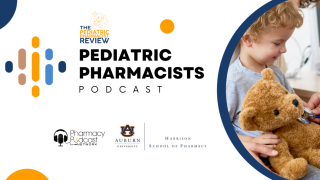Rheumatoid Arthritis Drug Significantly Reduces Severe COVID-19 Fatalities

The University of Oxford-led RECOVERY phase 2/3 clinical trial has demonstrated that baricitinib, an anti-inflammatory drug (JAK inhibitor) normally used to treat rheumatoid arthritis, reduces the risk of death when given to hospitalized patients with severe COVID-19.
Between February and December 2021, 4008 patients randomly allocated to usual care alone were compared with 4148 randomly assigned to usual care plus baricitinib.
Treatment with baricitinib significantly reduced deaths:
- 513 (12%) of the patients in the baricitinib group died within 28 days, compared with
- 546 (14%) patients in the usual care group,
- A reduction of 13% (age-adjusted rate ratio 0.87, 95% confidence interval [CI] 0.77 to 0.98; p= 0.026).
- The dose of baricitinib (Olumiant) tablets was 4mg once daily for ten days or until discharge from hospital if sooner.
- And patients receiving baricitinib were also more likely to be discharged alive within 28 days (80% vs. 78%, age-adjusted rate ratio 1.10, 95% CI 1.04-1.15; p<0.001).
And the benefit of baricitinib was consistent regardless of which other COVID-19 treatments the patients were also receiving, including corticosteroids, tocilizumab, or remdesivir.
When patients not on invasive mechanical ventilation entered the trial, baricitinib reduced the chance of progressing to invasive mechanical ventilation or death from 17% to 16%.
RECOVERY considerably strengthens the evidence from earlier trials that baricitinib is beneficial in severe COVID-19 and provides new evidence of the additional benefit of baricitinib on top of other immunomodulatory treatments.
RECOVERY is twice as large as the eight previous trials of baricitinib and similar JAK inhibitors to treat COVID-19 combined.
Overall the nine trials, which involved about 12,000 patients, found that the use of baricitinib (or another JAK inhibitor) reduced deaths in patients hospitalized for COVID-19 by about one-fifth (rate ratio 0.80, 95% CI 0.71 to 0.89; p<0.001).
Sir Martin Landray, Professor of Medicine and Epidemiology at Oxford Population Health and Joint Chief Investigator for RECOVERY, said in a press release issued on March 3, 2022, 'It is now well-established that in people admitted to hospital because of severe COVID-19, an over-active immune response is a key driver of lung damage.'
'Today's results not only show that treatment with baricitinib improves the chances of survival for patients with severe COVID-19, but that this benefit is additional to that from other treatments that dampen down the over-active immune response, such as dexamethasone and tocilizumab.'
'This opens up the possibility of using combinations of anti-inflammatory drugs to further drive down the risk of death for some of the sickest patients."
Baricitnib is the fourth treatment that the RECOVERY trial has shown to save lives:
- the steroid dexamethasone (June 2020),
- the arthritis treatment tocilizumab (February 2021), and,
- monoclonal antibodies (casirivimab plus imdevimab) known as Ronapreve (June 2021).
The preliminary results of the Baricitinib comparison have been published on medRxiv and will be submitted to a peer-reviewed medical journal shortly.
Note: The WHO's 9th COVID-19 recommendation issued on March 3, 2022, includes a 'strong recommendation' for the use of baricitinib as an alternative immunomodulatory in patients with severe or critical COVID-19.
Our Trust Standards: Medical Advisory Committee























